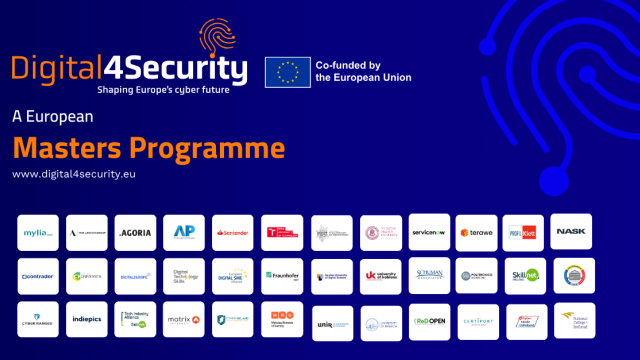 Cybersecurity today is a priority for everyone: it is the cornerstone of a connected and digital Europe. As the President of the European Commission Ursula Von der Leyen stressed in her 2021 State of the European Union speech, ‘We cannot talk about defence without talking about cyber. If everything is connected, everything can be hacked’.
Cybersecurity today is a priority for everyone: it is the cornerstone of a connected and digital Europe. As the President of the European Commission Ursula Von der Leyen stressed in her 2021 State of the European Union speech, ‘We cannot talk about defence without talking about cyber. If everything is connected, everything can be hacked’.
According to Eurostat data from 2023, more than one in five EU enterprises (21.54%) experienced ICT-related security incidents, leading to consequences such as unavailability of ICT services, destruction or corruption of data, or disclosure of confidential data. These incidents encompass data breaches, online fraud, and data leaks, significantly affecting European businesses, particularly small and medium-sized enterprises (SMEs). Cyberattacks and digital threats, such as data breaches, online fraud, or data leaks also impact European businesses, and especially SMEs. At the same time, demand for skilled professionals in the field of cybersecurity is growing, with some estimates of the Joint Research Centre (JRC) pointing to a shortage of 1 million cybersecurity employees within the EU, and 3.5 million worldwide.
The European Union undertakes a variety of actions to address these challenges. Key agencies and partners of the European Commission (ENISA, ECSO) enhance cooperation between stakeholders and Member States. The EU Cybersecurity Strategy pools funding and investment from major EU financial instruments, including the Digital Europe Programme, Horizon Europe, and the Recovery Plan for Europe, to enhance cybersecurity resilience for SMEs, upskill EU workforce and reach the 2030 targets of the Digital Decade. In particular, the Digital Europe Programme (DIGITAL) is investing in learning and training opportunities that will enhance the knowledge in cybersecurity in Europe. The Work Programmes 2023-2024 included a specific work programme focusing on cybersecurity, with a budget of €375 million for the period of 2023-2024, to enhance the EU's collective resilience against cyber threats.
Most importantly, from April 2023 the platform hosts the Cybersecurity Skills Academy. The Academy aims to develop cybersecurity skills through the implementation of new training opportunities or the scale-up of successful ones. Most recently the Academy extended its scope with the launch of a call for expression of interest to join the new Industry-Academia Network. The primary objective of this network is to foster cooperation between academia and industry and the significant skills and cybersecurity talent gap within the European Union. The Cyber Skills Academy goes hand in hand with the most recent actions undertaken by the EU, such as the Cyber Resilience Act (in force since December 2024) to enhance cybersecurity standards for digital products and the Cyber Solidarity Act (in force since February 2025) to strengthen the EU’s preparedness and response to cyber threats.
The Digital Skills and Jobs Platform keeps you up to date on cybersecurity-related information: check out the Platform to discover EU initiatives, national initiatives, training offers as well as resources, funding opportunities and many other. Scroll down the page to find out more!
The Platform also offers basic and advanced learning paths on Cybersecurity, two guided journeys for every user through the most relevant training and resources on the platform to get started with cybersecurity at different levels.
If you are interested in networking with experts and people with similar interests across Europe, join our Community.









